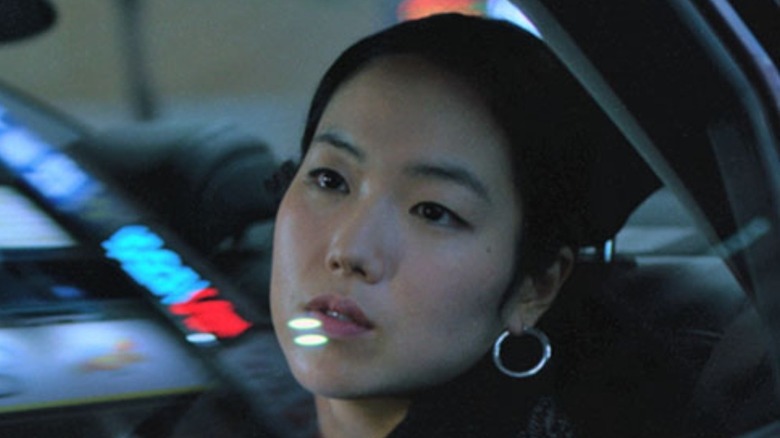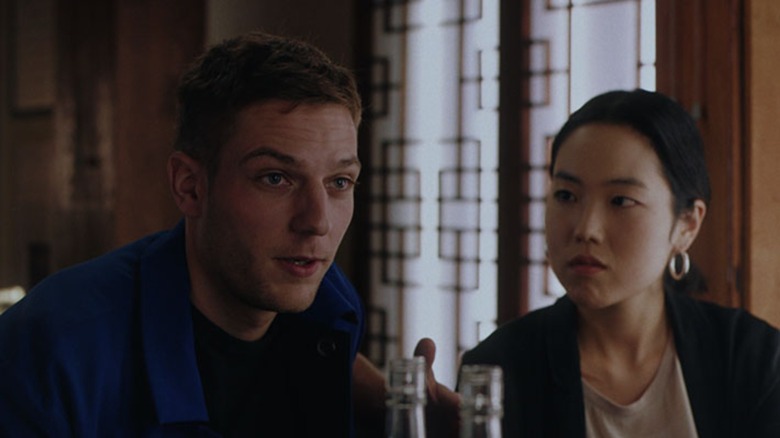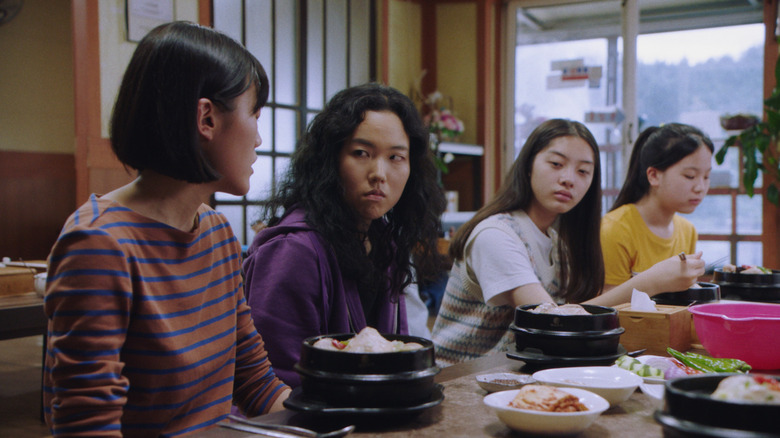Return To Seoul Review: A Truly Transformative Character Study
- Emotionally powerful story
- Exceptional lead performance by Park Ji-Min
- Interesting shifts in tone
- Could have dedicated more time to some segments
Roger Ebert famously described movies as "empathy machines," a descriptor that immediately came to my mind after watching and being blown away by "Return to Seoul." I can't write with any personal expertise on the accuracy or relatability of Cambodian-French director Davy Chou's film, based on the experiences of a friend of his who was adopted from Korea and sought out her biological family as an adult. I'd be very curious to read more informed opinions on the film from Korean or other transnational adoptees. What I can say is that this film made me feel a deeper emotional understanding of an experience very different from my own — which is one of the reasons we go to the movies.
Frédérique "Freddie" Benoît, the film's main character played outstandingly by first-time actress Park Ji-Min, is herself a seeker of different sorts of experiences. The film originally premiered at the 2022 Cannes Film Festival under the title "All the People I'll Never Be," a title that reflects how Freddie takes on different personas at different points in her life while struggling to figure out who she is. We follow her development over many years through a series of trips to Korea, each for ostensibly for different purposes but ultimately all connected to her attempts to find her roots.
"Return to Seoul" was Cambodia's official selection for the best international feature Oscar and made the Academy's official shortlist of 15 films, but ultimately didn't end up getting a nomination. If I might make a bold claim here, I'd rank "Return to Seoul" as even better than all of the (very good) films that did get nominated. Chou has made one of the best movies from any country of this or any other year.
An impulsive vacation changes a life
Freddie wasn't planning on taking her first trip to Seoul. Her flight to Tokyo got canceled due to a typhoon, so she took the flight that was available and it just happened to be her country of birth. At the start of the movie, she doesn't speak any Korean, but the charismatic hotel clerk Tena (Guka Han) serves as her translator and takes her out to socialize. People comment on Freddie's "classical Korean face," but she self-identifies as French and isn't even thinking about finding her birth parents — at first, anyway. There wouldn't be a movie if she didn't change her mind pretty soon.
This first visit to Korea is the longest section of the movie. The filmmaking style is casual and naturalistic, a slow burn that takes its time to build up the drama. Through the adoption agency, Freddie finds out her birth name, Yeon-Hee — it means "docile and joyful," ironic for a character who's highly assertive and not exactly a beacon of positivity) — and the identities of her biological mother (Cho-woo Choi) and father (Oh Kwang-Rok). The dad responds to her communications almost immediately, while the mom doesn't respond at all to begin with.
The reunion between Freddie and her biological father is where what started as a low-key hangout movie starts to become something more intense. Living outside the city in a small fishing town, Freddie's birth dad is a clingy alcoholic who can't shut up about his deep regrets. He keeps begging his newly found daughter to stay with him and continually tries to insert himself into her life, even when she wants distance. He's matched in emotional awkwardness by Freddie's grandmother (Hur Ouk-Sook), a devout Christian who is completely overwhelmed by the "miracle" of this reunion.
Park Ji-Min delivers a breathtaking performance
After the first reunion with Freddie's dad's side of the family, "Return to Seoul" leaps ahead in time for the first of several such major act breaks. When we first see her again, Freddie's career and social circle have changed, and she almost seems like a completely different person. I won't go into specifics so as to avoid spoilers, but to give a sense of the tonal shift that occurs, the soundtrack switches '60s pop to German techno. What an incredible feat of acting all of these transformations are for Park, a visual artist who's never acted in a movie before this one!
Freddie's life circumstances drastically change through each of time skips, but the emotional core of her search for belonging and her evolving relationship with her birth family keeps everything cohesive. The only fairly minor criticism I can make about the storytelling is that some of these different time periods prove so interesting that I wished we could have spent more time with some characters and scenes. Even then, I understand why the movie speeds up so much after the first trip, both for pacing reasons and because of an understanding that less detail might actually be more when it comes to emphasizing and understanding certain developments.
In its memorable use of music and dancing, in Freddie's oft-humorous casual sexual encounters, and the stylized and unexpected turns of the plot, Chou's film stays entertaining to watch throughout. And then, when the story demands it, Chou knows how to break your heart. Freddie isn't always a likable protagonist, and she even admits that in some ways she actually becomes a worse person due to her experiences in Korea. However, even at her most unlikeable and alienating, she is a character whom the viewer cares about and comes to understand. This is the cinematic empathy machine operating at a high level.
"Return to Seoul" opens in limited release on February 17th, expanding to more theaters in the following weeks.


